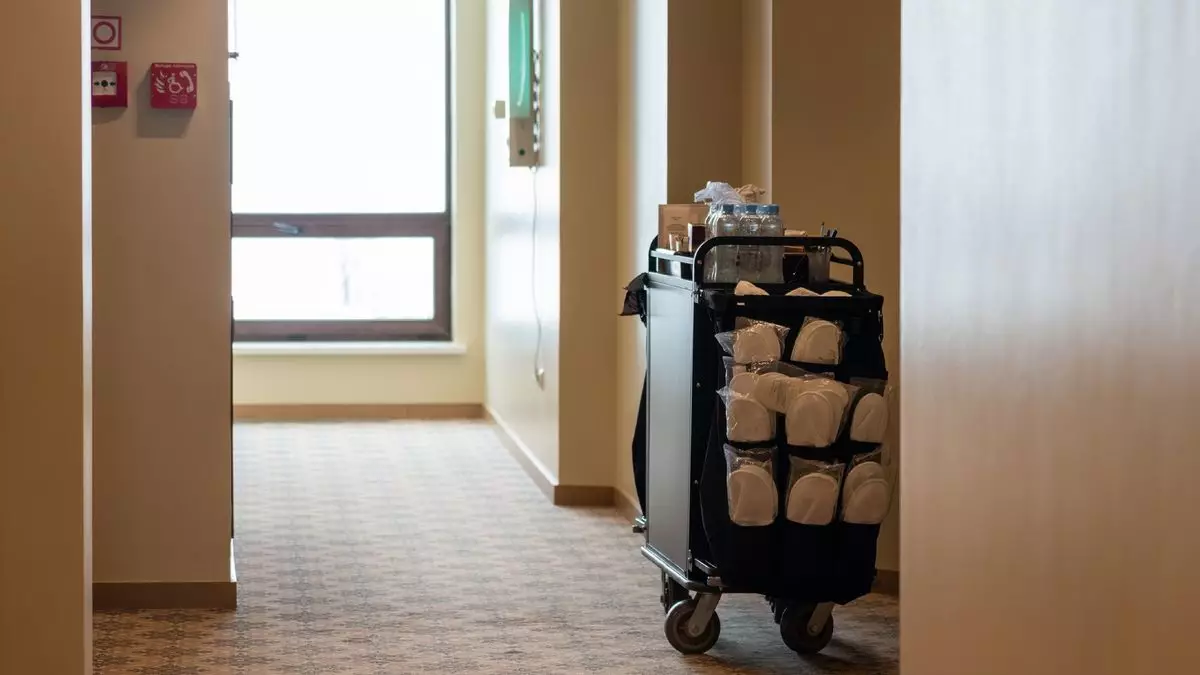The host of challenges facing the U.S. hospitality sector goes beyond a mere shortage of workers; it is complicated further by immigration policy shifts, particularly under the Trump administration’s stringent approach to enforcement. The specter of mass deportations raises significant alarms for hotel and restaurant operators as they navigate an already precarious labor landscape. This article delves into the intricacies and implications of potential deportations, analyzing varying perspectives within the industry and examining how this intersection of immigration and employment could redefine the future of hospitality work in the United States.
Understanding the Workforce Composition
The accommodation and food services sector ranks as the second-largest employer of undocumented workers in the U.S., just trailing behind the construction industry. Data from the Center for Migration Studies reveals that approximately 880,000 workers in this sector lack legal work authorization. Disaggregating this figure, states like New York alone host significant numbers of undocumented food service personnel—an aspect that has sparked considerable debate within the industry. While many operators vehemently deny employing undocumented workers, the reality is increasingly murky, highlighting the complexities tied to employment eligibility.
Yet, some industry experts challenge the narrative that suggests a pervasive reliance on undocumented labor. For instance, Peter Ricci, a figure with over three decades of experience in hospitality management, contends that hiring individuals without legal work authorization is largely exaggerated. He cites measures such as the e-Verify system, which allows employers to confirm work eligibility efficiently, to buttress his argument. Thus, there is a pronounced tension between narratives that paint a picture of widespread undocumented employment and assertions from industry veterans that suggest otherwise.
Matthew Lisiecki, a senior analyst at the Center for Migration Studies, helps clarify the situation’s complexity. He points out that many workers may have temporary protected status or pending asylum claims, enabling them to work legally, yet still placing their employment at risk due to policy fluctuations. Recent actions under the Trump administration, notably the cancellation of temporary protected status for Venezuelan nationals, exemplify how quickly work authorization can change, thereby creating an environment of uncertainty.
This fluidity in employment authorization poses a dual threat: not only could deportations directly strip the hospitality sector of its workforce, but the very apprehension surrounding these changes may contribute to an already tight labor market. Lisiecki emphasizes that exacerbating labor shortages is detrimental to an industry that can barely meet existing demand. The real risk lies not just in losing a segment of the workforce but in creating a chilling effect where potential workers may shy away from entering an already strained job market.
Discussions among industry leaders underscore the impending chaos surrounding potential mass deportations. During the Americas Lodging Investment Summit (ALIS) Law conference in Los Angeles, the fraught relationship between immigration policy and labor was highlighted as a pressing concern among hotel operators. Yariv Ben-Ari, a noted attorney in the hospitality space, articulated the palpable anxiety surrounding staffing shortages, particularly in essential services like housekeeping and food service.
As hotels grapple with the potential unavailability of these crucial roles, they risk returning to a situation reminiscent of pandemic-era austerities, where services would be curtailed due to staffing deficits. Ben-Ari warns that insufficient workers could lead hotels to pay premium wages to attract employees, ultimately translating the costs to consumers through increased pricing—a cyclical response that could destabilize the sector further.
Paradoxically, some executives argue that historical context suggests recent immigration policy shifts may not transform staffing levels as predicted. IHG Hotels & Resorts CEO Elie Maalouf offered a counterpoint during a panel discussion at ALIS, underlining that previous periods of high illegal immigration coincided with labor tightness and heightened wage inflation. He suggests that perceived intuition regarding workforce dynamics may not always align with reality, casting doubt on the notion that mass deportations would significantly exacerbate labor shortages.
The veracity of these varied viewpoints remains to be determined; however, they emphasize a larger point: many hoteliers are proactively bracing for an uncertain future. With the specter of changes in immigration policy looming large, operators find themselves at a crossroads, attempting to navigate a path that ensures a stable workforce amid shifting regulations.
The intersections of immigration policy and labor shortages present a complex challenge to the U.S. hospitality industry. As stakeholders attempt to balance operational viability with compliance and workforce stability, the coming months will be pivotal in shaping not only the immediate landscape of hotel management but the broader economic ramifications that service industries may face. The question remains: how will the hospitality sector adapt to these ongoing changes, and what will the long-term implications mean for workers, employers, and consumers alike?


Leave a Reply